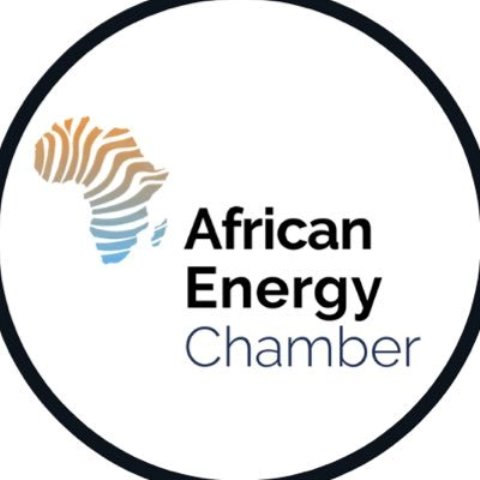AEC Warns Plastics Treaty Could Undermine Africa’s Energy and Industrial Growth
In a statement, the AEC stressed that while the treaty’s objectives may stem from environmental concerns in developed nations, its implementation in Africa could have devastating consequences.

- Country:
- South Africa
The second part of the fifth session of the Intergovernmental Negotiating Committee on the Treaty on Plastics is underway in Geneva, Switzerland, bringing together delegates from over 170 nations. The meeting aims to advance negotiations for a legally binding international instrument to curb plastic pollution, with a particular focus on cutting production levels of single-use plastics.
While environmental advocates have welcomed the talks as a step towards a cleaner planet, the African Energy Chamber (AEC) has issued a strong warning, arguing that the treaty would pose severe economic risks to African hydrocarbon-producing nations. According to the AEC, the proposed restrictions could cripple the petrochemical sector, disrupt ongoing oil and gas investments, and derail the continent’s industrialization and energy security plans.
AEC: Treaty Could Stifle Petrochemicals and Industrialization
In a statement, the AEC stressed that while the treaty’s objectives may stem from environmental concerns in developed nations, its implementation in Africa could have devastating consequences.
“This treaty would effectively stifle the growth of Africa's oil and gas industry, leading to increased energy poverty, hindered manufacturing, stalled industrialization, and a decline in vital investments for the chemicals sector,” the Chamber warned.
African countries such as Gabon, Ghana, Angola, and Senegal, which already face economic challenges but hold significant oil and gas reserves, would be among the hardest hit.
-
Gabon: 2 billion barrels of oil and 1.2 trillion cubic feet (tcf) of gas.
-
Ghana: 1.1 billion barrels of oil and 2.1 tcf of gas.
-
Senegal: 1 billion barrels of oil and 120 tcf of gas.
-
Angola: 9 billion barrels of oil and 11 tcf of gas.
The AEC argued that these resources are central to job creation, economic diversification, and regional development, and that petrochemicals in particular are key to driving progress in healthcare, agriculture, and transportation.
Country-by-Country Economic Stakes
Gabon is targeting 220,000 barrels per day (bpd) of oil production and is expanding into petrochemicals, LNG, and LPG processing. Major projects include:
-
$2 billion Cap Lopez LNG terminal (2026 start date)
-
Batanga LPG plant
-
SOGARA refinery expansion to 1.5 million tons by 2030
The AEC warns that treaty restrictions could derail these projects and weaken Gabon’s drive to eliminate energy poverty.
Senegal has two major energy projects underway:
-
Greater Tortue Ahmeyim (GTA) LNG project (2025 launch, 2.3 million tons per annum capacity, expanding to 5 mtpa)
-
Sangomar oilfield (operational in 2024)
The country is also planning a refinery and petrochemical plant via Sedin Engineering to produce plastics and chemicals. The treaty, the AEC says, could undercut these industrial ambitions.
Ghana is developing a $12 billion petroleum hub in Jomoro that will feature:
-
Three 300,000 bpd refineries
-
Five petrochemical plants
-
Storage and port infrastructure
This hub is expected to boost energy and food security across West Africa, but the treaty could undermine financing and long-term viability.
Angola, sub-Saharan Africa’s second-largest oil producer, is executing its Gas Master Plan to attract $30 billion in investment and generate $150 billion in economic benefits. Key elements include:
-
Boosting petrochemical and fertilizer production
-
Supporting the creation of new industries
The treaty’s restrictions could reduce oil, gas, and plastic demand, slowing Angola’s diversification plans.
Tanzania is also at risk, with over 57 tcf of gas reserves and major projects such as:
-
$42 billion Tanzania LNG project
-
Tanzania Mbolea and Petrochemicals Company Kilwa Complex (3.8 mtpa capacity, largest fertilizer plant in Africa, operational target 2028)
AEC notes that treaty-induced uncertainty could jeopardize financing for these transformative projects.
“Not in Africa’s Development Interest”
NJ Ayuk, Executive Chairman of the AEC, urged African countries to reject the treaty in its current form:
“We urge these countries to prioritize their energy and industrial needs over external environmental agendas that do not align with Africa's developmental priorities. Supporting this treaty would amount to shooting yourselves in the foot, making no sense for Africa's future.”
The AEC argues that while environmental protection is important, Africa’s pressing energy needs, industrialization goals, and poverty reduction strategies must take precedence in policy decisions.
Balancing Environmental Goals with Economic Realities
Negotiators in Geneva are expected to continue discussions on how to reconcile the treaty’s environmental objectives with the developmental needs of resource-rich countries. The final outcome will determine whether Africa’s hydrocarbon economies face significant new restrictions—or whether exemptions and phased approaches will be built into the global framework.










